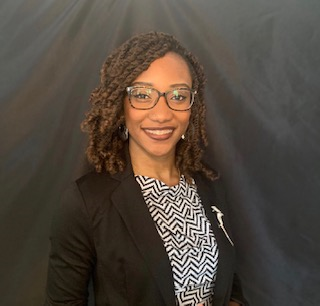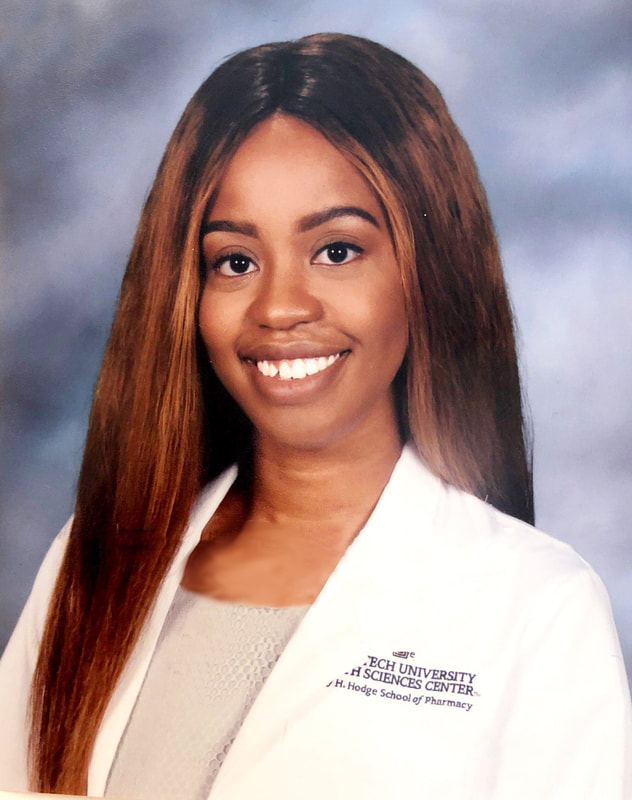|
Dear First Gen, The journey to host a platform that welcomed first-generation students and professionals began five years ago. The growth has been more than I imagined and you have contributed greatly to enhance the vision. THANK YOU! Watch the video below. Fellow Riser, Irnande ***Disclaimer: 2021. All rights reserved. All data and information provided on this site is for informational purposes only. No reproduction of any content on the website without the express permission of the author. The text, pictures and videos are the sole property of FirstGenRise.
4 Comments
Dear First Gen -
As a first-generation professional, there is much to learn about "professionalism in the workplace" such as email etiquette, negotiating salaries, performance reviews, networking, sponsorship, mentorship, and similarly critical, encouraging your employer to prioritize diversity and inclusion (D&I) . Here are two approaches to improve D&I when responding to an initial refusal. Below is a transcription of the video: • 0:01 - 0:30 Hello, my Fellow Risers! Hope all is well. I'm doing fine! Today, I just want to talk about a few things because in this world that we live in right now where there's a lot of racial justice comments and opinions that are going around. I've learned something in this moment that I just think has been valuable to me. The first thing I want to share is that it is so important to take notice of when “no” may not be the final answer. • 0:30 - 1:00 And I say that because many times I've heard people say “I am set, this is the decision.” “There's no turning back.” I just think that kind of finality is just unsettling for me because if we have an opportunity to diversify a group, if we have an opportunity to bring in other perspectives, to bring in diverse perspectives, to bring in people who are black who are people of color then I... • 1:00 - 1:30 I think that is an opportunity where we can extend the conversation. I've heard plenty of times when it's not the right moment. We'll keep looking. But if you are offered an opportunity where we can extend the conversation, and if you are offered an opportunity to give recommendations to extend the conversation. Then do it! Because “no” is not the final answer for when we are trying to make more creative thought happen within a place. • 1:31 - 2:00 Within the workplace, or create a thought from diverse perspectives can happen because that is vital to making sure that when we are on, you know, are creating a future for other people for you know, children who will eventually get to become adults. We want to make sure that we've set the stage up for them to be able to already have this kind of framework to already have this kind of environment exist. • 2:00 - 2:30 And the other thing that I've noticed at this moment in time is to allow pauses to happen. Sometimes people need to sit with what you sent them. Sometimes you need to sit with which you've received from somebody else. Because what I valued more now than I've ever is...I'm always wanting to do a quick response. I was want to get to you know, the response get someone the answer. • 2:30 - 3:00 But sometimes people would I've learned may need to reread what they sent you, and then from that they might already be able to you know rewind or you know, correct what they've said on their own without you having to do so because that right there is important because they might wonder why is there a pause? Why is there a break in this conversation where there once was not? So I really encourage you to things again. First is to be sure not to make “no” always the end of the conversation. • 3:00 - 3:30 Because people might need to be reminded on how to extend it when it comes to having more Black people. Having more People of Color in the room in the conversation and their perspectives part of the conversation. And then the second part is when it is best for you to take a pause. Do so! Don’t shy away from a pause. • 3:30 - 3:56 People don't like that break in conversation, but allow the break and conversation because sometimes people need to just then move and realize wait a minute...what's happened? Is this now my part to come in? Should I make a comment about it? So I say again really allow for those pauses to happen because sometimes it will be to your benefit and to someone's correction. Fellow Riser, Irnande ***Disclaimer: 2020. All rights reserved. All data and information provided on this site is for informational purposes only. No reproduction of any content on the website without the express permission of the author. The text, pictures and videos are the sole property of FirstGenRise. Dear First Gen, The #coronavirus turned the world upside down. Academic institutions were rocked by a sudden public health emergency and were encouraged to shutdown to mitigate the spread of the virus. Colleges and universities canceled in-person classroom instruction and switched to online/distance learning. Students who never took an online course were forced to learn in this way and communicate with professors through online platforms. The coronavirus pandemic also changed the structure of graduation ceremonies, summer placements, and athletic trainings. The lives of ALL students were abruptly altered. Students reacted in so many ways by changing how the process new information, study, organize, connect with fellow classmates, apply to internships, interview, and etc. We interviewed three students and asked them to share their perspective on how they are reacting to #COVID19. Our guests and topics were:
At the end of the interview series, the conversation weaved into a theme of balancing school obligations and personal needs. Click on the images below to watch the interviews. Enjoy! Fellow Riser, Irnande ***Disclaimer: 2020. All rights reserved. All data and information provided on this site is for informational purposes only. No reproduction of any content on the website without the express permission of the author. The text, pictures and videos are the sole property of FirstGenRise. 
Dannielle is the founder of First Gen Money, a financial literacy company that focuses on the first-generation population, those who are first to graduate from college or build wealth in the U.S. Dannielle hopes to empower and educate Latinas in their money journeys.
Born and raised Jersey girl with Ecuadorian immigrant parents, Dannielle graduated from Rutgers University in 2015 with a Political Science and Women’s and Gender Studies Degree, along with over $30,000 in student loan debt. As of December 2019, Dannielle lives debt-free, having paid off $26,385 in 26 months.
The First Gen Experience and Handling of Money
I enjoyed my interview of Dannielle during the 2019 FinCon.
She spoke about the various influences in her money decisions and reaction to #FinCon. ***Disclaimer: 2020. All rights reserved. All data and information provided on this site is for informational purposes only. No reproduction of any content on the website without the express permission of the author. The text, pictures and videos are the sole property of FirstGenRise.
Dear First Gen,
I had the esteemed honor of meeting Paul C. Brunson (@PaulCBrunson) in the flesh. So excited! I am a proud email subscriber and have been for years. Paul's newsletters highlighted his latest projects and future coaching opportunities. In 2018, I saw the announcement (finally had the courage to) submit by application, interviewed, and then accepted into one of his #Mastermind Groups. Unbelievable! And, since then, I have dutifully taken notes of his wisdom and teachings. Below is a video of his advice on how to approach #publicspeaking. Fellow Riser, Irnande
Dear First Gen -
The FREE 5-DAY UBELONG Challenge has returned! Are you ready? We are ready to welcome you and get you on the path of feeling connected. It is time to jump in and show everyone, including yourself, that you are a valuable asset in the space you occupy. With the #challenge, your mindset will be shifted! Over 5 days, you will work on actionable steps to get you in the rhythm of dominating the environments you are in. This challenge is the starter for all who seek to have a plan on how to own the spaces they walk into. NO MORE SIDELINE LIVING! LET'S GO! SIGN UP FOR THE FREE 5-DAY UBELONG CHALLENGE! I'm waiting for you so we can begin to address #impostersyndrome and deploy strategies to address the fears and doubts. Fellow Riser, Irnande ***Disclaimer: 2019. All rights reserved. All data and information provided on this site is for informational purposes only. No reproduction of any content on the website without the express permission of the author. The text, pictures and videos are the sole property of FirstGenRise.  Dear First Gen, Growing up, my parents spoke about history, the government, and how America responded to current events at the dining room table. In our house, the news channel was constantly on, including the weekends. So in college, it was natural for me to pursue opportunities to engage in political work. I recently wrote an article about my journey into U.S. politics, click here. Fellow Riser, Irnande ***Disclaimer: 2019. All rights reserved. All data and information provided on this site is for informational purposes only. No reproduction of any content on the website without the express permission of the author. The text, pictures and videos are the sole property of FirstGenRise.
Dear First Gen,
July is Minority Mental Health Month! How did you spend it? In the video, I share my perspective on this month and how as a person of color, I handle my stressful days and who has been my support system. I leaned on them in moments of strife and doubt. #minoritymentalhealth #reprensentationmatters Fellow Riser, Irnande ***Disclaimer: 2019. All rights reserved. All data and information provided on this site is for informational purposes only. No reproduction of any content on the website without the express permission of the author. The text, pictures and videos are the sole property of FirstGenRise.
Hi First Gen,
History is happening for all #Haitians, #HaitianAmericans, and supporters of #Haiti Mens' Soccer! For the first time in history, the Haiti National Football Team is in the quarterfinals of the Gold Cup! WOW! In the first half the team was down by 2 goals and in the second half there was a comeback. I enjoy a good comeback story and Haiti's was on display for all to watch. Listen to my opinion of the result. You are never down unless you stay down.
As a former #soccer player, I understand the tremendous effort it takes mentally and physically to achieve this outcome. I applaud Haiti's National Men's Football Team. #CaribbeanHeritageMonth
Fellow Riser, Irnande  Dear First Gen, For as long as I can remember, I was so excited at the thought of being a first-generation college #graduate. Before I knew it, my final semester was coming to an end and it was almost time for me to start my new life. Thankfully, the week before graduation, I accepted a job working at a high school in Mississippi. I would not start my job for a couple of months, but that was cool with me. I could use a nice summer break for a change! While I was looking forward to what I’d be doing in the months to come, I was struck with the fact that I had no immediate plans until it was time for me to move. I literally did not even know where I was going to lay my head for the next few months. I was certain though that I was not going to move back home because a large part of me was concerned that I’d be taking a step back. I was too worried about other’s thoughts of me having failed because I was back home. I was frantic the week of #graduation because everything was happening so quickly. Not only did I need a place to stay, I would also no longer be employed at the place where I’d been working since my freshman year of college. I remember feeling so doomed at this point because graduation was now only a few days away and I really needed to pull it together. I was getting scared because it started to hit me that I would no longer have access to a residence hall, cafeteria, or safe place. I would no longer be a part of the campus community and would lose quick access to my professors and mentors. While I had a laptop, I was going to have to give it back because it was only loaned to me as a part of my accommodations for being an Honors College student. I had no idea where my money was going to come from or where I’d get my next meal. I was losing all sense of security that I’d had for 4 years and it felt like a small crisis. However, I knew that it was on me to take care of my business and myself. Two days before graduation, I was chatting with my sorority sister—who was also about to be a first-gen college grad—about her plans for summer and she was as frantic as me about not having a place to stay. We decided to take the little money we had and split a cheap two-bedroom apartment until it was time for me to move to Mississippi. I don’t recall how she found the place, but we submitted an application that day and found out the next day we’d been approved. As soon as she got the call, we hurried over to pay our deposit and pick up our keys. (Oh, gosh! I was a real adult!) Moving after the graduation ceremony was pretty easy for us since we had no beds, dining table, kitchen utensils, couch, food in the fridge… nothing. Yet we had a place to stay and that was better than just a few days prior. Eventually, we started accumulating furniture: I bought a blowup bed from Walmart and we got a couch that had been donated to us. Soon, my sister got a table from Walmart that we put together in one night. Our groceries were often milk and cereal, eight-piece chicken from Walmart, spaghetti, and tacos. It wasn't glamorous, but we were fresh out of college and we didn’t want for much, so we were good. I also got a temporary job with my old employer and was able to work for a month until I relocated. Looking back at that time of my life, I often laugh because while I had a college degree, my life didn’t look anything like what I thought it would. See, having a degree doesn’t mean that all of your challenges, financial or otherwise, are going to magically disappear. However, I learned quite a few lessons and some I’d like to share with you:
The world is big and learning to face it can be scary; however, there are so many people who have traveled a similar road, so don’t ever doubt that you’ll be just fine. No matter the situation you’re faced with, trust that you’ll figure it out. Fellow Riser, Dr. Eve Hudson (Host behind The First-Gen Lounge) ***Disclaimer: 2019. All rights reserved. All data and information provided on this site is for informational purposes only. No reproduction of any content on the website without the express permission of the author. The text, pictures and videos are the sole property of FirstGenRise. |
|




 RSS Feed
RSS Feed